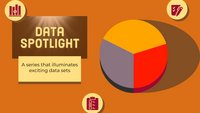gesis report 05/23
Liebe Leser*innen, seit heute ist der komplette Datensatz der ersten Befragungswelle von FReDA verfügbar! Ab sofort stehen die Daten aus den drei Teilwellen W1R, W1A und W1B den Forschenden zur Verfügung und können über GESIS angefordert werden. Der FReDA-Datensatz erlaubt repräsentative Analysen zur Situation und zum Wandel des Familienlebens, einschließlich Familienformen, Familiendynamik, Fertilität, Elternschaft, Sozialisation sowie Trennung und Scheidung im Kontext von z. B. Arbeitsmarkt, Mobilität und Gesundheit. Weitere Details siehe unten... Viel Freude bei der Lektüre wünscht Ihre Redaktion | Dear readers, FReDA is publishing the complete dataset from the first survey wave! As of now, the data from the three sub-waves W1R, W1A and W1B are available to researchers and can be requested via GESIS. The FReDA dataset makes it possible to carry out representative analyses of the situation and changes in family life, including family forms, family dynamics, fertility, parenthood, socialisation as well as separation and divorce in the context of e.g. the labour market, mobility and health. For further details see below... Enjoy reading! Your editorial team |
GESIS Fall Seminar in Computational Social Science 2023 – Places AvailableThe GESIS Fall Seminar targets social scientists, data scientists, and researchers in the digital humanities who want to work with digital behavioral data (“big data”). Learn how to collect and analyze these data from the web, social media, or digital text archives from GESIS and international experts! Lectures in each course are complemented by hands-on exercises giving participants the opportunity to apply computation social science methods to data. The Fall Seminar takes place in Mannheim from 11 to 29 September. All courses are held in English. Week 1 (11 - 15 September) Introduction to Computational Social Science with R Week 2 (18 - 22 September) Automated Web Data Collection with R Week 3 (25 - 29 September) Social Network Analysis with R For those without any prior experience in R or Python and those who’d like a refresher, we’re additionally offering two pre-courses, “Introduction to R” and “Introduction to Python” (three days, online) in the week before the start of the Fall Seminar. More info & registration at http://gesis.org/fallseminar. | GESIS Training |
 | Starker Auftakt für FReDA - Veröffentlichung des DatensatzesFReDA veröffentlicht den kompletten Datensatz der ersten Befragungswelle! Ab sofort stehen die Daten aus den drei Teilwellen W1R, W1A und W1B den Forschenden zur Verfügung und können über GESIS angefordert werden. A strong start for FReDA - Publication of the datasetToday is the day: FReDA is publishing the complete dataset from the first survey wave! As of now, the data from the three sub-waves W1R, W1A and W1B are available to researchers and can be requested via GESIS. |
 | Jetzt verfügbar: Harnessing Data Innovation for Migration Policy: A Handbook for PractitionersDas Handbuch für die Praxis bietet Einblicke aus erster Hand, warum und wie nicht-traditionelle Datenquellen zu einem besseren Verständnis migrationsbezogener Phänomene beitragen können. Besondere Empfehlung: Dr. Steffen Pötzschke: Kapitel 9: The Sampling of Migrants through Advertisements on Facebook and Instagram; https://publications.iom.int/system/files/pdf/Practitioners-Guide.pdf Out now: Harnessing Data Innovation for Migration Policy: A Handbook for PractitionersThe Practitioners’ Handbook provides first-hand insights into why and how non-traditional data sources can contribute to better understanding migration-related phenomena. Special recommendation: Dr. Steffen Pötzschke: Chapter 9: The Sampling of Migrants through Advertisements on Facebook and Instagram; https://publications.iom.int/system/files/pdf/Practitioners-Guide.pdf |
 | PIAAC Scripts Digital Platform - Kollektion von PIAAC-Skripten frei verfügbarAuf der PIAAC Scripts Digital Platform ist jetzt eine Kollektion von PIAAC-Skripten frei verfügbar. Die PIAAC-Skriptsammlung umfasst Analyseskripte auf der Grundlage von PIAAC-Daten, die in Workshops und Tutorials oder in Open-Access-Publikationen entstanden sind. PIAAC Scripts Digital PlatformGet now a collection of PIAAC scripts for free. The PIAAC scripts collection include analyses scripts based on PIAAC data emerging from workshops and tutorials or open access publications. |
 | Neu erschienen: Dr. Oshrat Hochman (Hg.): Immigration and Integration in Israel and BeyondEinwanderung ist ein anhaltendes und komplexes Phänomen, das mit geografischen, politischen, gesellschaftlichen und wirtschaftlichen Herausforderungen verbunden ist. Die Zahl der internationalen Migrant*innen hat in den letzten fünf Jahrzehnten kontinuierlich zugenommen. Die Autor*innen dieses der Professorin Rebeca Raijman gewidmeten Bandes befassen sich mit verschiedenen Arten von Migrantion wie Wirtschafts- oder Arbeitsmigrantion, Zwangsmigrantion und ethnischer Migrantion. Out now: Dr. Oshrat Hochman (Ed.): Immigration and Integration in Israel and BeyondImmigration is a persistent and complex phenomenon intertwined with geographical, political, societal, and economic challenges. The number of international migrants has been continually increasing over the past five decades. The contributors to this volume dedicated to Professor Rebeca Raijman address various types of migrants like economic or labour migrants, forced migration and ethnic migrants. |
 | Wie übersetzt man einen Fragebogen? Neue Survey Guideline zur Fragebogenübersetzung erschienenDie Guideline zeigt mit vielen Beispielen, worauf es bei der Fragebogenübersetzung ankommt - von der Übersetzung der Bedeutung und kulturellen Adäquatheit bis hin zu Konsistenz, Stil & Layout. Do you want to know how to translate a questionnaire? Check out the new Survey GuidelineUsing many examples, it provides information on what is important in survey translation - from the importance of meaning & cultural adequacy to consistency, layout, & style. |
 | Neue Publikation: Jedinger & Kaminski: The association between system-justifying ideologies and attitudes toward the social market economy in GermanyJedinger, A. & Kaminski, S. The association between system-justifying ideologies and attitudes toward the social market economy in Germany. Current Psychology (2023). https://doi.org/10.1007/s12144-023-04483-7 In der vorliegenden Studie untersuchen Alexander Jedinger (GESIS) und Simone Kaminski (Hochschule München) den Zusammenhang zwischen Autoritarismus, sozialer Dominanzorientierung und der Einstellung zur sozialen Marktwirtschaft in Deutschland. Out now: Jedinger & Kaminski: The association between system-justifying ideologies and attitudes toward the social market economy in GermanyJedinger, A. & Kaminski, S. The association between system-justifying ideologies and attitudes toward the social market economy in Germany. Current Psychology (2023). https://doi.org/10.1007/s12144-023-04483-7 In the present study, the authors examined the link between two system-justifying ideologies, namely, right-wing authoritarianism (RWA) and social dominance orientation (SDO), and attitudes toward the social market economy in Germany. |
 | Prof. Dr. Ingvill Constanze Ødegaard im Vorstand der Kölner WissenschaftsrundeBereits im April wurde GESIS-Kollegin Prof. Dr. Ingvill Constanze Ødegaard in den Vorstand der Kölner Wissenschaftsrunde (KWR) gewählt. Wir gratulieren! Prof. Dr. Ingvill Constanze Ødegaard on the Board of the Cologne Science ForumAlready in April, GESIS colleague Prof. Dr. Ingvill Constanze Ødegaard was elected to the board of the Cologne Science Forum (KWR). Congratulations! |
 | Neue Publikation: Roy, Carevic & Mayr: Retrievability in an integrated retrieval system: an extended study.Roy, D., Carevic, Z. & Mayr, P. Retrievability in an integrated retrieval system: an extended study. Int J Digit Libr (2023). https://doi.org/10.1007/s00799-023-00363-4 In diesem Beitrag untersuchen die Autor*innen die Auffindbarkeit in einem integrierten Suchsystem, das aus Elementen aus verschiedenen Kategorien besteht, wobei sie sich insbesondere auf Datensätze, Publikationen und Variablen in einer realen digitalen Bibliothek konzentrieren. Out now: Roy, Carevic & Mayr: Retrievability in an integrated retrieval system: an extended study.Roy, D., Carevic, Z. & Mayr, P. Retrievability in an integrated retrieval system: an extended study. Int J Digit Libr (2023). In this paper, the authors investigate the retrievability in an integrated search system consisting of items from various categories, particularly focussing on datasets, publications and variables in a real-life digital library. |
 | Fehlende Werte in Umfragedaten? Neue Survey Guideline hilft weiterIn den neuen Survey Guidelines für Umfragen findet man alle relevanten Informationen zur Imputation fehlender Werte, um notwendige Entscheidungen zu treffen! Survey Guideline zur Imputation fehlender Werte Missing values in survey data? New Survey Guideline helpsCheck out this Survey Guideline for insights on missing value imputation. It's here to help you navigate required critical decisions! |
 | Neu erschienen: easy (68): Digitale Gesellschaft(en). Neue Forschungsansätze zur Digitalen TransformationDiese Ausgabe beleuchtet die Herausforderungen und Chancen, die die Digitalisierung für die Forschung mit sich bringt, einschließlich der Organisation von Forschung und dem Umgang mit neuen Datentypen. Out now: easy (68): Digital Societ(ies): New Research Approaches to Digital TransformationIn this issue, different perspectives are highlighted, from the conception of relevant research questions to the collection and processing of new types of data, to the communication of scientific results. Please note: there is only one article in English in this issue. For the other contributions you will find English abstracts in the issue. |
 | Neue Publikation: Bernhard Clemm von Hohenberg: Truth and Bias, Left and Right: Testing Ideological Asymmetries with a Realistic News SupplyBernhard Clemm von Hohenberg, Truth and Bias, Left and Right: Testing Ideological Asymmetries with a Realistic News Supply, Public Opinion Quarterly, 2023 Die Debatte um "Fake News" hat die Frage aufgeworfen, ob sich Liberale und Konservative erstens in ihrer Fähigkeit unterscheiden, wahre von falschen Informationen zu unterscheiden, und zweitens in ihrer Tendenz, Informationen, die ideologisch kongruent sind, mehr Glauben zu schenken. Typische Designs zur Messung dieser Asymmetrien wählen - oft willkürlich - eine kleine Gruppe von Nachrichten als experimentelle Stimuli aus, ohne klaren Bezug zu einer "Informationspopulation". Diese Studie verfolgt einen alternativen Ansatz. Out now: Bernhard Clemm von Hohenberg: Truth and Bias, Left and Right: Testing Ideological Asymmetries with a Realistic News SupplyBernhard Clemm von Hohenberg, Truth and Bias, Left and Right: Testing Ideological Asymmetries with a Realistic News Supply, Public Opinion Quarterly, 2023 The debate around “fake news” has raised the question of whether liberals and conservatives differ, first, in their ability to discern true from false information, and second, in their tendency to give more credit to information that is ideologically congruent. Typical designs to measure these asymmetries select, often arbitrarily, a small set of news items as experimental stimuli without clear reference to a “population of information.” This pre-registered study takes an alternative approach. |
 | Jetzt neu: Data Spotlights im GESIS BlogBesuchen Sie jetzt unsere neue Beitragsserie im GESIS Blog: Data Spotlights! Von Zeit zu Zeit werden wir eine Sammlung von Daten, die bei GESIS verfügbar sind, in den Fokus rücken. Wir beginnen mit #1 und stellen die Erhebungen des Presse- und Informationsamtes der Bundesregierung vor: https://blog.gesis.org/data-spotlight-1/ Out now: Data Spotlights on the GESIS BlogCheck out our new post series on the GESIS Blog: Data Spotlights! From time to time, we will turn the spotlight on a collection of data available at GESIS. We start with #1 and present the Surveys by the Press and Information Office of the Federal Government: |
 | Neu erschienen: Reinhard Pollak, Petra Böhnke et al.: izpb - Soziale UngleichheitPetra Böhnke, Johannes Giesecke, Olaf Groh-Samberg, Corinna Kleinert, Dirk Konietzka, Kathrin Leuze, Reinhard Pollak: Soziale Ungleichheit. Informationen zur politischen Bildung, Heft 354, Bonn 2023. https://www.bpb.de/shop/zeitschriften/izpb/520360/soziale-ungleichheit/ Immer wenn Ressourcen wie Geld oder Eigentum und Lebensbedingungen wie Gesundheit oder soziale Kontakte ungleich verteilt sind, wird von sozialer Ungleichheit gesprochen. Neben Vermögensungleichheit gehört auch Chancenungleichheit – wie etwa die Chance auf ein besseres Leben oder einen Bildungsausaufstieg – dazu. Out now: Reinhard Pollak, Petra Böhnke et al.: izpb - Soziale UngleichheitPetra Böhnke, Johannes Giesecke, Olaf Groh-Samberg, Corinna Kleinert, Dirk Konietzka, Kathrin Leuze, Reinhard Pollak: Soziale Ungleichheit. Informationen zur politischen Bildung, Heft 354, Bonn 2023. https://www.bpb.de/shop/zeitschriften/izpb/520360/soziale-ungleichheit/ Whenever resources such as money or property and living conditions such as health or social contacts are unequally distributed, we speak of social inequality. In addition to inequality of wealth, this also includes inequality of opportunity - such as the chance of a better life or advancement in education. |
 | E-Mail wird nicht richtig dargestellt? Jetzt im Browser anschauen! Eine Abbestellung des Newsletters "gesis report" ist jederzeit über diesen Link möglich: https://lists.gesis.org/mailman/listinfo/gesis-newsletter Sie können uns auch gerne eine E-Mail senden: pr(at)gesis(dot)orgDie Datenschutzhinweise von GESIS können Sie über folgenden Link einsehen: https://www.gesis.org/institut/datenschutz/ Display problems? No images? Open the newsletter in your browser! You can unsubscribe from the newsletter "gesis report" at any time via this link: https://lists.gesis.org/mailman/listinfo/gesis-newsletter You can also send us an e-mail: pr(at)gesis(dot)org The GESIS data protection information can be viewed via the following link: https://www.gesis.org/institut/datenschutz/ |

